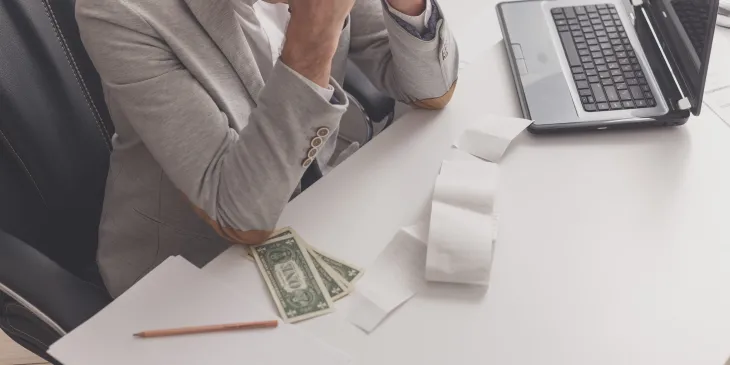Credit Checkup: How to Get Your Credit in Order and Pay Off Debt

There’s much that goes into your overall credit history. Your credit report helps lenders decide how likely you are to repay a financial obligation, including things such as a personal loan, credit card, auto loan, or a larger purchase like a home. It also shows lenders whether you pay on time, every time.
If your credit history contains a few, or several, blemishes, it’s not the end of the world. You can do several things to get your credit in order and pay off debt, and it begins with knowing what’s in your credit history.
Know Your Credit Report
When you think of your credit report, the first thing that comes to mind is your credit score. Do you have a high score, a low score, or is it somewhere in between? The problem is that your credit score is only a small part of your credit report.
Your credit report also lists what debts you currently have, how long you’ve held them, whether your payments are delinquent or on time, how much debt you have, and whether there are any other marks on your account, such as a bankruptcy or a credit write-off.
You have three credit reports, not one, and each may slightly differ from the next. So, you’ll need to get a copy of all three reports. You can get a free copy of your credit reports yearly through the Annual Credit Report website.
The three credit bureaus are:
Start Your Emergency Savings
If you don’t already have an emergency savings account in place, start small with $1,000. It won’t be enough to manage all of life’s emergencies, nor is it intended to. Instead, it’s a starter fund, and it’s one promoted by financial guru Dave Ramsey.
The idea is simple. Save your initial $1,000, then pay off debt. Once you pay off your debt, return to your emergency account and fully fund it.
Evaluate Your Debt
Before evaluating your debt, decide which method of debt repayment you want to go with. There are three methods for paying off debt: the debt avalanche, the debt snowball, and debt consolidation. There are pros and cons to each.
Debt Avalanche
The debt avalanche method focuses on paying off debts with the highest interest rates first and the lowest interest rates last.
If you have a lot of high-interest debt, you might save a ton in interest. However, if your debts are large and many, it might take you much longer to see a “win,” which can be discouraging.
Debt Snowball
The debt snowball offers an alternative to the avalanche. Instead of focusing on the interest rates of your debts, you’ll focus on the dollar amounts. The snowball method has you list out your debts from smallest to largest. You’ll make your minimum payments on all, but you’ll add extra to your smallest debt to pay it off sooner. Once you pay it off, move on to the next debt.
This method aims to give you small wins along the way to motivate you to continue to the end.
The disadvantage of the snowball method? Since you’re focusing on paying debts based on monetary value rather than interest, you might pay more interest while working on your debt. However, many find the trade-off worth it to gain traction through small wins. Ultimately, you must decide which method makes the most sense for you.
Debt Consolidation
Debt consolidation is a loan. The goal is to help you pay off your outstanding debt and save on interest while lowering your monthly payment. However, like other loans, you’ll need to meet a minimum credit score requirement, which is often around the mid-600s, but is sometimes lower. Sometimes debt consolidation isn’t the right answer, for example, if by consolidating your debt, you end up with a higher payment and higher interest. One way to tell is by using our online debt consolidation calculator to see if a debt consolidation loan might be right for you. Still not sure? Reach out to one of Extraco's loan experts for assistance.
The Final Word
Improving your credit and paying off debt are smart money moves that will serve you. An ancient Roman playwright named Plautus once said, “You must spend money to make money.” The problem is, the more money you make, the more you’ll likely spend. Having a budget and managing your credit wisely will help keep your debt in check now and in the future. Paying off debt might seem painful now, but the greater reward of financial freedom awaits you once you clear the path.




